BMW X5 vs VW Caddy Compact Van - Differences and prices compared
Compare performance (625 HP vs 150 HP), boot space and price (77100 £ vs 25800 £ ) at a glance. Find out which car is the better choice for you – BMW X5 or VW Caddy Compact Van?
Costs and Efficiency:
Price and efficiency are often the first things buyers look at. Here it becomes clear which model has the long-term edge – whether at the pump, the plug, or in purchase price.
VW Caddy Compact Van has a clearly advantage in terms of price – it starts at 25800 £ , while the BMW X5 costs 77100 £ . That’s a price difference of around 51236 £.
Fuel consumption also shows a difference: VW Caddy Compact Van manages with 0.50 L and is therefore convincingly more efficient than the BMW X5 with 3 L. The difference is about 2.50 L per 100 km.
As for electric range, the VW Caddy Compact Van performs slightly better – achieving up to 120 km, about 15 km more than the BMW X5.
Engine and Performance:
Under the bonnet, it becomes clear which model is tuned for sportiness and which one takes the lead when you hit the accelerator.
When it comes to engine power, the BMW X5 has a decisively edge – offering 625 HP compared to 150 HP. That’s roughly 475 HP more horsepower.
In terms of top speed, the BMW X5 performs noticeable better – reaching 250 km/h, while the VW Caddy Compact Van tops out at 186 km/h. The difference is around 64 km/h.
There’s also a difference in torque: BMW X5 pulls decisively stronger with 750 Nm compared to 320 Nm. That’s about 430 Nm difference.
Space and Everyday Use:
Cabin size, boot volume and payload all play a role in everyday practicality. Here, comfort and flexibility make the difference.
Seats: BMW X5 offers significantly more seating capacity – 5 vs 2.
In curb weight, VW Caddy Compact Van is significantly lighter – 1442 kg compared to 2240 kg. The difference is around 798 kg.
In maximum load capacity, the VW Caddy Compact Van performs convincingly better – up to 3700 L, which is about 1830 L more than the BMW X5.
When it comes to payload, VW Caddy Compact Van slight takes the win – 759 kg compared to 705 kg. That’s a difference of about 54 kg.
Who wins the race in the data check?
The VW Caddy Compact Van is clearly superior overall in the objective data comparison.
This result only shows which model scores more points on paper – not which of the two cars feels right for you.
Costs and Consumption
View detailed analysis
Engine and Performance
View detailed analysis
Dimensions and Body
View detailed analysis
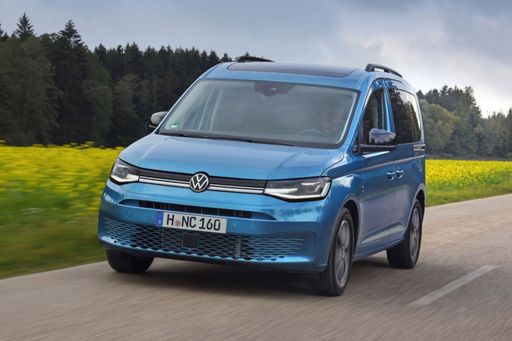
VW Caddy Compact Van
BMW X5
The BMW X5 blends athletic handling with a roomy, premium interior, feeling equally at home on twisty country roads and the school-run car park. Its executive-lounge cabin and confident road presence make it a tempting choice for buyers who want comfort, capability and just a little bit of bragging rights.
details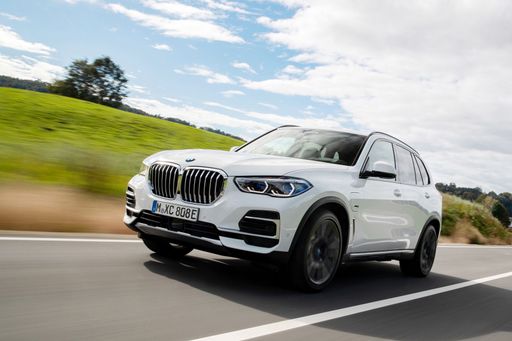
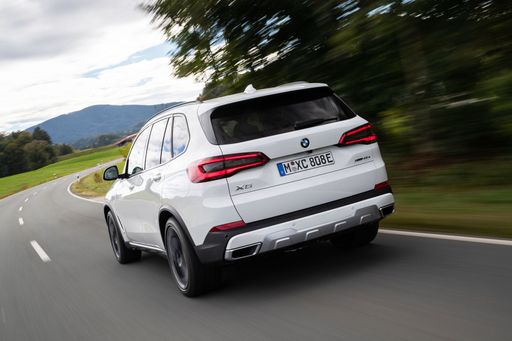
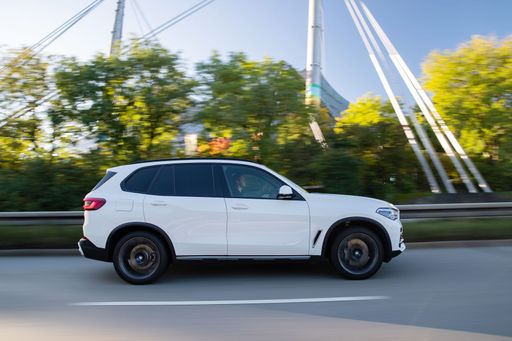
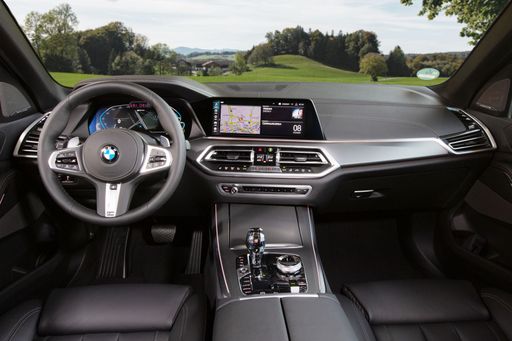
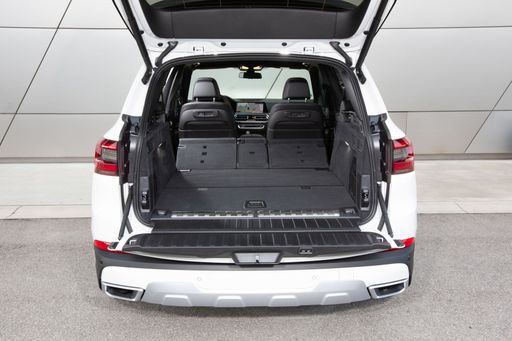
VW Caddy Compact Van
The VW Caddy is a clever compact van that turns urban chores into something almost enjoyable, thanks to smart packaging and a cabin that refuses to feel like punishment. For buyers who want useful practicality without drama, the Caddy is a tidy, dependable choice that quietly gets the job done while remaining surprisingly pleasant to drive.
details
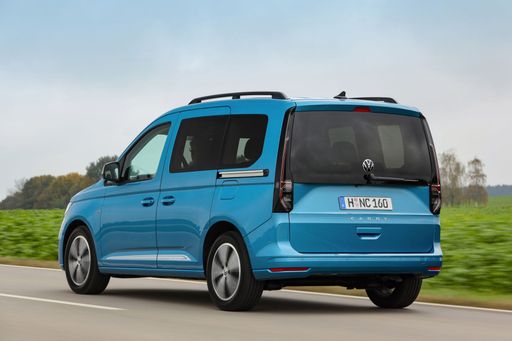
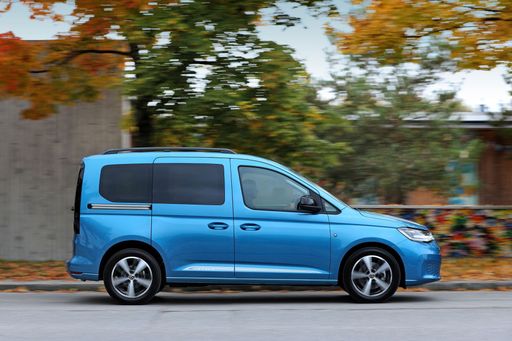
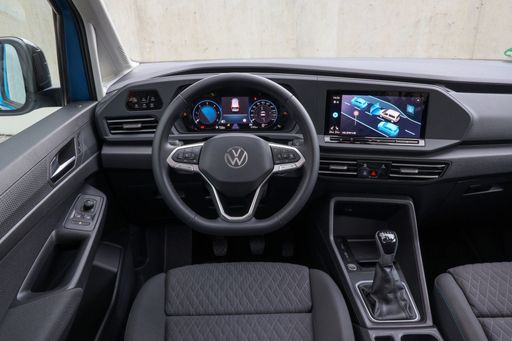
Costs and Consumption |
|
|---|---|
|
Price
77100 - 143500 £
|
Price
25800 - 42300 £
|
|
Consumption L/100km
3 - 12.8 L
|
Consumption L/100km
0.5 - 6.8 L
|
|
Consumption kWh/100km
-
|
Consumption kWh/100km
-
|
|
Electric Range
105 km
|
Electric Range
117 - 120 km
|
|
Battery Capacity
25.70 kWh
|
Battery Capacity
19.70 kWh
|
|
co2
68 - 289 g/km
|
co2
11 - 154 g/km
|
|
Fuel tank capacity
69 - 83 L
|
Fuel tank capacity
50 L
|
Dimensions and Body |
|
|---|---|
|
Body Type
SUV
|
Body Type
Cargo Van
|
|
Seats
5
|
Seats
2
|
|
Doors
5
|
Doors
4 - 5
|
|
Curb weight
2240 - 2495 kg
|
Curb weight
1442 - 1818 kg
|
|
Trunk capacity
500 - 650 L
|
Trunk capacity
-
|
|
Length
4935 mm
|
Length
4500 - 4853 mm
|
|
Width
2004 - 2015 mm
|
Width
1855 mm
|
|
Height
1755 - 1765 mm
|
Height
1819 - 1823 mm
|
|
Max trunk capacity
1720 - 1870 L
|
Max trunk capacity
3100 - 3700 L
|
|
Payload
565 - 705 kg
|
Payload
628 - 759 kg
|
Engine and Performance |
|
|---|---|
|
Engine Type
Petrol MHEV, Diesel MHEV, Plugin Hybrid
|
Engine Type
Petrol, Diesel, Plugin Hybrid
|
|
Transmission
Automatic
|
Transmission
Manuel, Automatic
|
|
Transmission Detail
Automatic Gearbox
|
Transmission Detail
Manual Gearbox, Dual-Clutch Automatic
|
|
Drive Type
All-Wheel Drive
|
Drive Type
Front-Wheel Drive, All-Wheel Drive
|
|
Power HP
298 - 625 HP
|
Power HP
102 - 150 HP
|
|
Acceleration 0-100km/h
3.9 - 6.1 s
|
Acceleration 0-100km/h
-
|
|
Max Speed
250 km/h
|
Max Speed
175 - 186 km/h
|
|
Torque
540 - 750 Nm
|
Torque
220 - 320 Nm
|
|
Number of Cylinders
6 - 8
|
Number of Cylinders
4
|
|
Power kW
219 - 460 kW
|
Power kW
75 - 110 kW
|
|
Engine capacity
2993 - 4395 cm3
|
Engine capacity
1498 - 1968 cm3
|
General |
|
|---|---|
|
Model Year
2025
|
Model Year
2024
|
|
CO2 Efficiency Class
G, B
|
CO2 Efficiency Class
E, B
|
|
Brand
BMW
|
Brand
VW
|
Is the BMW X5 offered with different drivetrains?
The BMW X5 is available as All-Wheel Drive.
